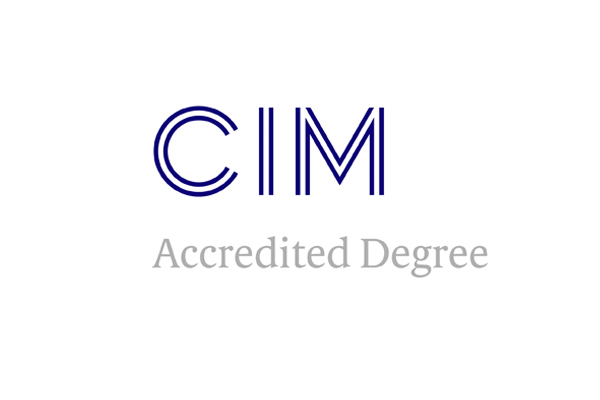Module Overview
Understanding how consumers really behave has been identified as one of the fundamental issues which serve to distinguish marketing from other disciplines. This module explores the thoughts , feelings, and actions of people in the consumption process. The module is designed to equip students with the knowledge and skills to understand what consumer behaviour is, why it is important for marketers and organisations, and how to initiate customer research activities to explore the increasing complexity of customer behaviour. The focus will be around exploring how consumer attitudes and behaviours are formed and strategies adopted by marketers to influence the consumer decision-making process.
Module Overview
This module builds on the principles of the United Nations Global Compact and the ‘purpose’ of the Principles of Responsible Management Education, as well as the ‘essence’ of the World Business Council for Sustainable Development, Vision 2050, to develop the knowledge, skills, and capabilities of students to be future creators of sustainable value for business, and to work towards an increasingly inclusive society and a more sustainable global economy.
This involves rethinking and reengineering business strategies and activities, to understand organisational constructs and influences, as well as that of their ’own agency’, to be the change that produces and secures economic, social, and environmental value for current and future generations. This means systematically examining contemporary business, economic development, and the historic relationships with a ‘Eurocentric’ social-cultural construct within global commerce and management, to discover a fairer and increasingly viable future.
As a consequence, this module will ask students to explore and reflect on responsible management, sustainability, and ethical practice, as well as the resultant effects on global society, and the environmental costs created by human interaction as they analyse and evaluate contrasting strategies and approaches. This will not only provide a better understanding of the challenges of responsibly managing sustainability and ethical practice but will also identify and emphasise the questions to be addressed in respect of their future management endeavours.
Module Overview
The module places the development of marketing communications in the context of business and marketing strategies within a changing digital landscape. Theories of information processing and buyer behaviour around a target audience are explored and applied in the development of an integrated marketing communications plan (IMC). Emphasis is placed on the critique of the elements of the communications mix, the media selection, and the evaluation of the effectiveness and efficiency of communications deployed.
Module Overview
The aim of this module is to introduce students to marketing research, equip them with relevant research skills needed in the workplace and underpin the independent projects at Level 6. The module will cover aspects such as defining market research problems and the stages involved in conducting marketing research. Students will also be introduced to research philosophy and the different research approaches. The module will also provide students the opportunity to develop fundamental understanding of important research conventions such as ethical considerations and the marketing ethics code of conduct.
A crucial aspect of the module will be introducing students to quantitative and qualitative research methods and providing students with a practical approach to developing these skills. The students will be actively involved in the process and will get a chance to source secondary data, formulate a plan, conduct primary research and evaluate and present the findings. This will prepare the students and give them the necessary skills needed for their final year dissertation, consultancy and responsible enterprise projects.
Module Overview
This module is designed to introduce students to a wide range of Operations Management topics that contribute to an understanding of organisations as systems seeking to remain viable and competitive within their environment.
Module Overview
The module builds on theoretical concepts introduced in Principles of Marketing. The module takes students towards strategic marketing in preparation for their final level studies by emphasising the 3Cs: customers, competitors and competences. The module considers how changing macro and micro environmental influences impact and are incorporated into the marketing planning process. The module blends a theoretical and applied approach, requiring students to use relevant models and frameworks both in the analysis of case material and when developing a sustainable product concept.
Module Overview
This module builds on the concepts that were introduced in the first-year module, FIN1012M Finance for Non-Specialists. The aim of this module is to focus on utilising management accounting and financial information for the purpose of planning business activities, undertaking control mechanism, informing decision-making, and measuring and improving business performance.
Module Overview
This module is only for students whose first language is not English.
The aim of the module is to enable students to communicate successfully in the international business world. The module focuses on a range of business skills that can be applied in a global context, as well as the skills and themes associated with working in a foreign country or dealing with international businesses. The module places an emphasis on independent study.
The module aims to strengthen and consolidate existing communicative competence and introduce new skills. Students can learn persuading, influencing, negotiating, and problem solving skills. There is the opportunity to develop a broad critical understanding of cultural issues and their impact on businesses.
Module Overview
This module is designed to equip students with understanding and skills to help them deal with the financial issues they will face in whatever business discipline they eventually practice. At its conclusion, students should have a solid understanding of the key elements of financial management that inform and affect the choices made by business. Furthermore, students have a platform in the principles, models, and issues that underpin the advanced aspects of the subject area.
Business Finance Practice is concerned with the efficient and effective management of the finances of an organisation in order to achieve its objectives. It involves planning and controlling: where funds are raised from, where funds are deployed to, and whether funds are being used effectively or not. In many organisations, Finance is recognised as one of the major management functions alongside others such as marketing, production and human resources. In this module, students can develop an understanding of several principles that underpin business finance as a discrete discipline.
Students are able to learn to analyse real world companies’ stock and financial performance as well as financial health. Students can also learn to solve finance problems and provide data and information using computer technology.
Module Overview
The module provides an introduction to the underlying theories and concepts relating to the innovation process in the firm. It clarifies the nature and definition of innovation in the form of varied types of new Activity including product and process innovation, service innovation and organisational and business model innovation.
As a result of the module students are expected to have a better understanding of the innovation process and how it might be supported in a variety of organisations.
Module Overview
Lincoln International Business School (LIBS) believes that an option to study overseas is a valuable educational opportunity for our students.
The optional year is intended to:
- enable students to benefit from studying similar subjects within a cross cultural environment, by exposing students to a wider academic and cultural experience;
- facilitate reflexivity in learning and personal and professional development;
- enhance their future employment opportunities by increasing their cultural and professional mobility.
This module is optional for all taught on campus undergraduate students within Lincoln International Business School. Study Abroad is a year long module which enables students to spend time studying abroad at one of the University’s approved partner institutions.
During the year spent abroad, students share classes with local students and study on a suite of locally-delivered taught modules which have been approved in advance by the University. As many partner institutions support internships it is anticipated that some students will elect to combine study (minimum one semester equivalent) with work and or a period of volunteering.
Eligible students must have completed their second year of study to a satisfactory standard (normally with an average of a 2.1 or above, dependent upon partner requirements) standard and successfully completed the application process.
Upon completion of the study period abroad, each student will be required to submit a portfolio including a reflection on the experience of living and studying in a different cultural environment and the skills acquired.
Module Overview
This module is aimed at those students who have decided to take a year out of formal studies to gain accredited work experience and are registered on a degree programme with an accredited professional practice element. The Professional Practice Year aims to give students a continuous experience of full-time work within an organisation.
It should be a three way co-operative activity between employer, student and University from which all parties benefit. Students can choose to pursue a variety of options including a placement year, a consultancy project or a work-based dissertation. Potential costs relating to this module are outlined in the Features tab.
Module Overview
Increasing standards of living and wealth in society has resulted in more of our income spent on services rather than manufactured goods. In a similar vein, more of the working population are earning their living from providing services. Meanwhile, traditional marketing and marketing units tend to be product based rather than reflecting the importance of the consumption of services and the implications. The more recent trend of sustainable business shifts strategic attention to building consumer relationships through various components and concepts of services marketing, putting more emphasis on fostering customer loyalty and retention.
In view of the economic and marketing trends, this module is not simply an extension of traditional marketing. It provides students with an understanding of services marketing and relationship strategies in business to prepare them for entering a broader scope of industries both within UK and international contexts. Topics currently analysed in academic research and adopted by industry will be explored to provide currency and timely application of these insights. The module will include but is not limited to exploring the environmental context of services business and the way the extended marketing mix can be used to evaluate the service environment. Principles of relational marketing will be introduced with specific focus on the development of customer retention strategies. Tactical use of services marketing will be explored to develop customer relationships that build loyalty and increase value.
Module Overview
Students can elect to study up to 60 credits abroad at one of our partner universities , usually in the second semester. Usually students will elect to study for a semester and take 60 credits of study.
Module Overview
Students can elect to study up to 60 credits abroad at one of our partner universities , usually in the second semester. Usually students will elect to study for a semester and take 60 credits of study.
Module Overview
Students can elect to study up to 60 credits abroad at one of our partner universities , usually in the second semester. Usually students will elect to study for a semester and take 60 credits of study.
Module Overview
Students can elect to study up to 60 credits abroad at one of our partner universities , usually in the second semester. Usually students will elect to study for a semester and take 60 credits of study.














